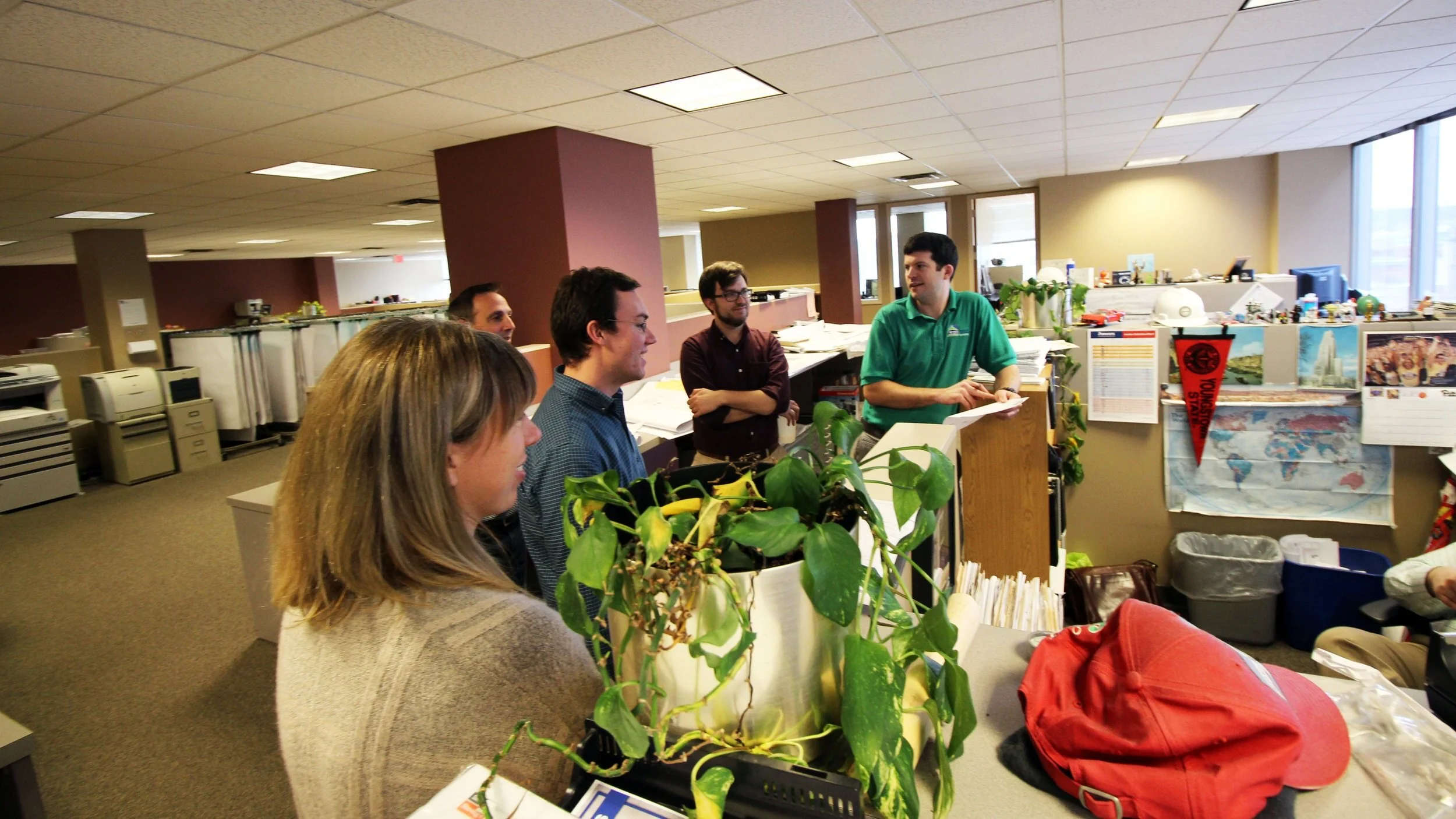4 Things You Should Know Before Working with Structural Engineers
Moving to Pittsburgh was one of the biggest decisions of my life. As a 22-year old, moving from a small town in SC to the bustling city of Pittsburgh, PA, was daunting.
I was lucky enough to find a home at AES. When I started my job search, I reached out to many companies across many industries. I was granted a Skype interview (the company’s first), and it was a match made in heaven. I moved, they welcomed me in, and 7 months later I still feel at home.
The thought of working with engineers was one that had not crossed my mind when considering my career paths. Architecture had always been intriguing, but what in the world was a structural engineer?
Before anything else, I had to figure out what a structural engineer even did! It was described to me by the president of the company perfectly: “Architects make the buildings pretty, we make them stand up.”
Next, now that I know what structural engineers do, how do I work with them? I had no industry experience and no clue what acceptable standards were. Each industry has a stereotype, so what was theirs? Once I figured that out, the question became how do I work with them?
The engineer stereotype was clear: a man with an introverted personality; one who locks himself in his office for days on end with little sleep to perfect his mathematical calculations and structural evaluations; one who cracks corny engineering jokes that no one else understands; one that is incredibly intelligent and, well, dull.
AES broke this stereotype for me. At first, sure, some of the stereotypes fit like a glove. Their jokes were… distinctive. They were also incredibly intelligent, and yes, sometimes, undeniably dull. As time passed, those stereotypes faded, and I had the pleasure of discovering the true engineer. These discoveries led to my understanding of what you need to know before working with engineers.
First, do not assume that all engineers are men. Believe it or not, there are women that trudge out into the field in their hardhats, dresses, and boots to evaluate construction progress, analyze structural capacities, and design buildings. Do not let this male dominated industry skew your idea of engineering. These women are not afraid to take on projects head on, and maybe they want those Buccos tickets too…
Second, do not mistake dedication for introversion. These engineers work harder and longer hours than most other professions on the average day. One of my responsibilities is to assist the office bookkeeper, so I see the hours that my coworkers put in. Many engineers sacrifice their time to make sure their deadlines are met, and our clients leave exemplary reviews of our services. Despite these long hours and hard work, they still find time to let their extroversion shine during lunch meetings, office outings, and personal activities.
Third, as a team, they are required to be perfectionists; as individuals, they are not. Many people assume that all engineers are obsessive perfectionists, and that is simply not true. Mistakes are not acceptable in an industry where the durability of buildings is at stake, and big projects often require more than one engineer to be successful. If you have a good team, not each player has to be a perfectionist. One engineer may be the detail oriented one, another may see the big picture. At the end of the day, each engineer leaves their mark on a project, and the project, as it must be, is flawless.
Lastly, all these attributes combined do not equal a boring personality. Some of my greatest memories of my home in Pittsburgh have come from the new and exciting things that my coworkers have introduced me to; from 3:00 p.m. ice cream trips downtown, to weekend ski trips in New York.
I write this to simply say: working with structural engineers was nothing like I expected. I have loved every minute, and I feel incredibly lucky to have these experiences with such unique people. Don’t listen to the stereotypes you hear, and if you don’t believe me, join us for Happy Hour sometime!

